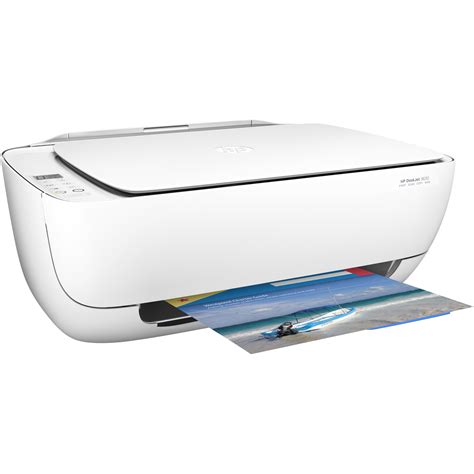Winamp allocator output
Author: m | 2025-04-24

WinAmp Allocator Output 1.0. A Loudspeaker Frequency Allocator wrapper for Winamp users. WinAmp Allocator Output 1.0. A Loudspeaker Frequency Allocator wrapper for Winamp users.

WinAmp Allocator Output 1.0 - Download
Winamp Allocator Output Activator Download + Activation Code Download.rar More from this folder More from this playlist More from this channel More from this album More from this shelf Winace Full Version & Serial Number.rar Jael Bender in 2810Lc_32 37 KB 4 months ago Jael Bender WinCam Full Key Generatored.rar Jael Bender in 2810Lc_32 38 KB 4 months ago Jael Bender Winavi All In One Converter Free Download Full Version.rar Jael Bender in 2810Lc_32 38 KB 4 months ago Jael Bender Win7 32 Bits.rar Jael Bender in 2810Lc_32 37 KB 4 months ago Jael Bender Win7 Serial No.rar Jael Bender in 2810Lc_32 37 KB 4 months ago Jael Bender Win-Move Free Download Plus Keygen.rar Jael Bender in 2810Lc_32 37 KB 4 months ago Jael Bender View all 4798 files View all 4798 tracks View all 4798 videos View all 4798 images View all 4798 books File Name 11:11 in 100 Mb 1 day ago File Author Description Winamp Allocator Output Activator Download + Activation Code Download - download at 4shared. Winamp Allocator Output Activator Download + Activation Code Download is hosted at free file sharing service 4shared. Checked by McAfee. No virus detected. Comments Add new comment Send Cancel 500 characters left Continue in app Scan QR code to open file in 4shared app Winamp Allocator Output Activator Downlo... File QR Code: Winamp Allocator Output Activator Download + Activation Code Download.rar Download will start automatically Thank you for downloading You have exceeded your traffic limit Winamp Allocator Output Activator Download
WinAmp Allocator Output Activatored Activation Code
Memory manager—it is three memory managers in one! It contains three significantly different subsystems—small block allocator, medium block allocator, and large block allocator.The first one, the allocator for small blocks, handles all memory blocks smaller than 2,5 KB. This boundary was determined by observing existing applications. As it turned out, in most Delphi applications, this covers 99% of all memory allocations. This is not surprising, as in most Delphi applications most memory is allocated when an application creates and destroys objects and works with arrays and strings, and those are rarely larger than a few hundred characters.Next comes the allocator for medium blocks, which are memory blocks with a size between 2,5 KB and 160 KB. The last one, allocator for large blocks, handles all other requests.The difference between allocators lies not just in the size of memory that they serve, but in the strategy they use to manage memory.The large block allocator implements the simplest strategy. Whenever it needs some memory, it gets it directly from Windows by calling VirtualAlloc. This function allocates memory in 4 KB blocks so this allocator could waste up to 4,095 bytes per request. As it is used only for blocks larger than 160 KB, this wasted memory doesn't significantly affect the program, though.The medium block allocator gets its memory from the large block allocator. It then carves this larger block into smaller blocks, as they are requested by the application. It also keeps all unused parts of the memory in a linked list so that it can quickly find a memory block that is still free.The small block allocator is where the real smarts of FastMM lies. There are actually 56 small memory allocators, each serving only one size of the memory block. The first one serves 8-byte blocks, the next one 16-byteWinamp Allocator Output Activator Downlo - 4shared
Foobar is my Fav player where can i find DSP Wrapper Plugin for foobar ay link..... I will see if I can figure it out when I get some time....I am very busy. Sound quality depends on what output and plugins your using in each player, they both potentially play completely lossless audio however, so neither has better sound quality. Only prblm i notice is tat delay in opening Winamp and Volume littlebit low..... it doesn't matter if they both play lossless, foobar outputs better sound quality period. The software is better. I'm a stickler with my audio and better quality and less "playing" with the source (EQ, upconverting to 5.1, DSPs, etc.) the better. I've done the WinAMP thing in the past with Audioburst, Ozone, etc. Foobar is the way to go with WASAPI or ASIO output if you want the best output from a PC at this point. The player has nothing to do with the audio quality...its all digital. Winamp can use ASIO and WASAPI, and both will output the EXACT same thing if you set them up the same, but believe whatever you want. I gave the Winamp setup a try on my Prelude (using Ribbon tweeter speakers), set to quality stereo mode.It sounds a little better than the default Directsound.I couldnt detect more detail listening to a cymbal on one speaker but during music, stereo separation was better, sometimes quite a bit.This made stereo sound more detailed.Soz not to compare to ASIO or Kernel Streaming, neither work in my Winamp.I'll have a go at fixing it if anyone is interested in those comparisons? Share This Page. WinAmp Allocator Output 1.0. A Loudspeaker Frequency Allocator wrapper for Winamp users. WinAmp Allocator Output 1.0. A Loudspeaker Frequency Allocator wrapper for Winamp users.winamp allocator output activator download activation code
Return it. At that moment, however, another thread also needs some memory from the same allocator. This second execution thread (running in parallel with the first one) would also find a free memory block on the free list. If the first thread didn't yet update the free list, that may even be the same memory block! That can only result in one thing—complete confusion and crashing programs.It is extremely hard to write a code that manipulates some data structures (such as a free list) in a manner that functions correctly in a multithreaded world. So hard that FastMM doesn't even try it. Instead of that, it regulates access to each allocator with a lock. Each of the 56 small block allocators get their own lock, as do medium and large block allocators.When a program needs some memory from, say, a 16-byte allocator, FastMM will lock this allocator until the memory is returned to the program. If during this time, another thread requests a memory from the same 16-byte allocator, it will have to wait until the first thread finishes.This indeed fixes all problems but introduces a bottleneck—a part of the code where threads must wait to be processed in a serial fashion. If threads do lots of memory allocation, this serialization will completely negate the speed-up that we expected to get from the parallel approach. Such a memory manager would be useless in a parallel world.To fix that, FastMM introduces memory allocation optimization which only affects small blocks.When accessing a small block allocator, FastMM will try to lock it. If that fails, it will not wait for the allocator to become unlocked but will try to lock the allocator for the next block size. If that succeeds, it will return memory from the second allocator. That will indeed waste moreWinamp Allocator Output Crackeded Activation Code Download
Memory but will help with the execution speed. If the second allocator also cannot be locked, FastMM will try to lock the allocator for yet the next block size. If the third allocator can be locked, you'll get back memory from it. Otherwise, FastMM will repeat the process from the beginning.This process can be somehow described with the following pseudo-code:allocIdx := find best allocator for the memory blockrepeat if can lock allocIdx then break; Inc(allocIdx); if can lock allocIdx then break; Inc(allocIdx); if can lock allocIdx then break; Dec(allocIdx, 2)until falseallocate memory from allocIdx allocatorunlock allocIdxA careful reader would notice that this code fails when the first line finds the last allocator in the table or the one before that. Instead of adding some conditional code to work around the problem, FastMM rather repeats the last allocator in the list three times. The table of small allocators actually ends with the following sizes: 1,984; 2,176; 2,384; 2,608; 2,608; 2,608. When requesting a block size above 2,384 the first line in the pseudo-code above will always find the first 2,608 allocator, so there will always be two more after it.This approach works great when memory is allocated but hides another problem. And how can I better explain a problem than with a demonstration ...?An example of this problem can be found in the program, ParallelAllocations. If you run it and click the Run button, the code will compare the serial version of some algorithm with a parallel one. I'm aware that I did not explain parallel programming at all, but the code is so simple that even somebody without any understanding of the topic will guess what it does.The core of a test runs a loop with the Execute method on all objects in a list. If a parallelTest flag isWinamp Allocator Output Key Generator Activation Code
Installed Winamp plugin listGenerated by 'One for Nunz v4.3.1' on 05/08/2010 at 11:53:47>Winamp.ini path is: C:\Users\Aeroja\AppData\Roaming\Winamp\Winamp.iniPlugin directory is: C:\Program Files (x86)\Winamp\PluginsVisualisation directory is: C:\Program Files (x86)\Winamp\PluginsDSP directory is: C:\Program Files (x86)\Winamp\PluginsSkin directory is: C:\Program Files (x86)\Winamp\SkinsLanguage Pack directory is: C:\Program Files (x86)\Winamp\LangUsing Winamp version: 5.58 (Build 2985 FINAL_2010_0712_160456)Winamp Elevator build: Build 2985 FINAL_2010_0712_160456Current skin: Bento (Modern skin)Sonic Burning Engine is installed>Running on: Windows 7Memory available: 4193396 KB>Monkey's Audio Player v4.06 [in_APE.dll]Nullsoft AVI Demuxer v0.4 [in_avi.dll]Nullsoft CD Plug-in (MusicID 2.6) v3.92 [in_cdda.dll]Nullsoft DirectShow Decoder v1.08 [in_dshow.dll]Nullsoft FLAC Decoder v2.1 [in_flac.dll]Nullsoft Flash Video Decoder v1.4 [in_flv.dll]Nullsoft LineIn Plug-in v3.12 [in_linein.dll]Nullsoft MIDI Player v3.17 [in_midi.dll]Nullsoft Matroska Demuxer v0.6 [in_mkv.dll]Nullsoft Module Decoder v2.83 [in_mod.dll]Nullsoft MPEG Audio Decoder v4.92 [in_mp3.dll]Nullsoft MP4 Demuxer v2.1 [in_mp4.dll]Nullsoft NSV Decoder v1.2 [in_nsv.dll]Nullsoft Flash Control Playback v1.1 [in_swf.dll]Nullsoft Vorbis Decoder v1.56 [in_vorbis.dll]Nullsoft Waveform Decoder v3.18 [in_wave.dll]Nullsoft Windows Media Decoder v3.4 [in_wm.dll]>Nullsoft Disk Writer v2.14 [out_disk.dll]Nullsoft DirectSound Output v2.49 (d) [out_ds.dll] [active]Nullsoft WaveOut Output v2.12 (d) [out_wave.dll]>Advanced Visualization Studio v2.83 [vis_avs.dll]MilkDrop v2.21 [vis_milk2.dll] [active]Nullsoft Tiny Fullscreen v2.11 [vis_nsfs.dll]>Nullsoft Signal Processing Studio DSP v0.39b [dsp_sps.dll]>Nullsoft Modern Skins Support v1.4 [gen_ff.dll]Nullsoft Global Hotkeys v1.8 [gen_hotkeys.dll]Jump To File Extra v1.1.1 (Build 1052) [gen_jumpex.dll]Nullsoft Media Library v3.29 [gen_ml.dll]One for Nunz v4.3.1 [gen_nunzio.dll]Nullsoft Music Usage Database v1.0 [gen_orgler.dll]Nullsoft Tray Control v2.41 [gen_tray.dll]>Nullsoft Now Playing v3.8 [ml_nowplaying.dll]Nullsoft Local Media v2.92 [ml_local.dll]Nullsoft Playlists v1.18 [ml_playlists.dll]Nullsoft Winamp Add-ons v1.0 [ml_addons.dll]Nullsoft Online Services v1.65 [ml_online.dll]Nullsoft Podcasts v1.29 [ml_wire.dll]Nullsoft Rip & Burn v1.91 [ml_disc.dll]Nullsoft Portable Music Player Support v1.27 [ml_pmp.dll]Nullsoft Bookmarks v1.1 [ml_bookmarks.dll]Nullsoft History v1.7 [ml_history.dll]Nullsoft Auto-Tagger v2.04 [ml_autotag.dll]Nullsoft Downloads v1.01WinAmp Allocator Output Full Repack Acti - 4shared
Major Dude Join Date: Feb 2003 Posts: 724 Null Output 21 February 2003, 15:48 Hey,Can you use two instances of Winamp at the same time, or will it affect the broadcast? For example, can you put the broadcasting (SHOUTcast) instance of Winamp on the NULL Output and use another instance to cue songs?Will that cause any problems?rg. Alumni Join Date: Sep 2001 Posts: 14103 Depends on your broadcast settings.If you're in advanced/soundcard mode and both Winamps are making sounds, then both will be heard.Otherwise, one Winamp/DSP combo going straight to the DNAS with the null ouput should be separate from a second Winamp. Even if you fire up the DSP on the second Winamp, it won't connect since the DNAS only accepts one source. Comment Major Dude Join Date: Feb 2003 Posts: 724 Ahh, yeah, didn't think about that...ok...i got it:Soundcard mode + two winamps = mixed broadcast.Winamp mode + two winamps = OK, b/c only first is broadcasting (no sound overlap at all?).Btw, when someone says advanced mode, is "soundcard mode" all they're refering to?thanks,rg. Comment Alumni Join Date: Sep 2001 Posts: 14103 From my limited experience with either, they're the same thing to me.I've only used Winamp as the source.Your scenario appears correct. Comment. WinAmp Allocator Output 1.0. A Loudspeaker Frequency Allocator wrapper for Winamp users. WinAmp Allocator Output 1.0. A Loudspeaker Frequency Allocator wrapper for Winamp users.
WinAmp Allocator Output 1.0 - Download, Screenshots - Softpedia
The program waited 19,020 times for a memory manager to become unlocked. Next, we can see that the memory function that caused the problem was FreeMem. Furthermore, we can see that somebody tried to delete from a list (InternalDoDelete) and that this deletion was called from TSpeedTest.Execute, line 130. FreeMem was called because the list in question is actually a TObjectList and deleting elements from the list caused it to be destroyed.The most important part here is the memory function causing the problem—FreeMem. Of course! Allocations are optimized. If an allocator is locked, the next one will be used and so on. Releasing memory, however, is not optimized! When we release a memory block, it must be returned to the same allocator that it came from. If two threads want to release memory to the same allocator at the same time, one will have to wait.I had an idea on how to improve this situation by adding a small stack (called release stack) to each allocator. When FreeMem is called and it cannot lock the allocator, the address of the memory block that is to be released will be stored on that stack. FreeMem will then quickly exit.When a FreeMem successfully locks an allocator, it firstly releases its own memory block. Then it checks if anything is waiting on the release stack and releases these memory blocks too (if there are any).This change is also included in the main FastMM branch, but it is not activated by default as it increases the overall memory consumption of the program. However, in some situations, it can do miracles and if you are developing multithreaded programs you certainly should test it out.To enable release stacks, open the project settings for the program, remove the conditional define LogLockContention (as that slows the program down)winamp allocator output preactivated activation code download
Junior Member Join Date: Jan 2002 Posts: 7 How do you stop an output plugin from becoming active? Spectral Techorator Join Date: Jun 2000 Posts: 36148 Well, you would've had to make it active in the first place, so simply go back and undo what you did, ie.Winamp -> Prefs (Ctrl+P) -> Plugins -> Output:Nullsoft WaveOut is the default output plugin for normal playback.Nullsoft DirectSound can also be used for normal playback.Simply select one of these two and all will be fine Most other output plugins are used for Writing files/recording/encoding.Whichever plugin is selected becomes active,so simply click on the one you need. Comment Junior Member Join Date: Jan 2002 Posts: 7 Tried that - No luck!Dj EggThx for your reply...but try what you just said & see if it works!You cant deselect an output plugin....?!There is no way opf stepping back. I`ve even tried removing the dll`s from the directory. Winamp then wont function as it still thinks it should be outputting & requests the plugin.The only current alternative is to uninstall & reinstall...but this isn`t really user friendly. Winamp v2.78.Please reply back Comment Spectral Techorator Join Date: Jun 2000 Posts: 36148 huh? deselect? I never said that!Maybe I didn't explain clearly enough?There is no deselecting, just selecting!Select the one plugin you want to be active by single clicking it!however, you haven't even told me which plugin is currently active (ie. the one you no longer want to use) and which one you do want to be active.Let's assume then shall we that you've been using Nullsoft DiskWriter to write files to WAV. You would've had to select this for use by single clicking it. To return to normal playback, simply single left click on the plugin you want to be active (ie. one of WaveOut or DirectSound)Only one output plugin can be active at once.And one HAS to be selected!Is that any clearer?ps.removing default plugins (dll files) from the winamp\plugins dir is NOT recommended! Comment Junior Member Join Date: Jan 2002 Posts: 7 I dont want an output plugin at all.DJ Egg.Thx for the clarification.I dont want any output plugins selected at all to run. if i single click NULLSOFT DISK WRITER i cant stop using it. at the top of the pane it says "Output plug-ins (current plug-in is selected" even when you try to click it again! and it outputs still!!Therefore I propose my original query "How do you stop an output plugin from working?"If you are able to do what you have said then perhaps there is a compatability issue with winamp 2.78 & XP .Sorry if sound "Shirty" but I really enjoy using Winamp as a player & only occassionally output from it.Woz Comment ist death Join Date: May 2000 Posts: 3704 if you do not enable any output plugin (theoretically), your sound won't be sent to soundcard, and whole thing won't work at all.waveOut output is selected by default (it sends sound to your soundcard), and you should switch back to it after. WinAmp Allocator Output 1.0. A Loudspeaker Frequency Allocator wrapper for Winamp users. WinAmp Allocator Output 1.0. A Loudspeaker Frequency Allocator wrapper for Winamp users.winamp allocator output cracked activation code download
* 24 + 32 = 80 bytes. Then it will look for an appropriate allocator, find one that serves 80-byte blocks (great, no memory loss!) and return a block from that allocator. It will, of course, also have to copy data from the original block to the new block.This formula, 2 * size + 32, is used only in small block allocators. A medium block allocator only overallocates by 25%, and a large block allocator doesn't implement this behavior at all.Next time you add one character to this string, FastMM will just look at the memory block, determine that there's still enough space inside this 80-byte memory block and return the same memory. This will continue for quite some time while the block grows to 80 bytes in two-byte increments. After that, the block will be resized to 2 * 80 + 32 = 192 bytes (yes, there is an allocator for this size), data will be copied and the game will continue.This behavior indeed wastes some memory but, under most circumstances, significantly boosts the speed of code that was not written with speed in mind.Memory allocation in a parallel worldWe've seen how FastMM boosts the reallocation speed. The life of a memory manager is simple when there is only one thread of execution inside a program. When the memory manager is dealing out the memory, it can be perfectly safe in the knowledge that nothing can interrupt it in this work.When we deal with parallel processing, however, multiple paths of execution simultaneously execute the same program and work on the same data. Because of that, life from the memory manager's perspective suddenly becomes very dangerous.For example, let's assume that one thread wants some memory. The memory manager finds a free memory block on a free list and prepares toComments
Winamp Allocator Output Activator Download + Activation Code Download.rar More from this folder More from this playlist More from this channel More from this album More from this shelf Winace Full Version & Serial Number.rar Jael Bender in 2810Lc_32 37 KB 4 months ago Jael Bender WinCam Full Key Generatored.rar Jael Bender in 2810Lc_32 38 KB 4 months ago Jael Bender Winavi All In One Converter Free Download Full Version.rar Jael Bender in 2810Lc_32 38 KB 4 months ago Jael Bender Win7 32 Bits.rar Jael Bender in 2810Lc_32 37 KB 4 months ago Jael Bender Win7 Serial No.rar Jael Bender in 2810Lc_32 37 KB 4 months ago Jael Bender Win-Move Free Download Plus Keygen.rar Jael Bender in 2810Lc_32 37 KB 4 months ago Jael Bender View all 4798 files View all 4798 tracks View all 4798 videos View all 4798 images View all 4798 books File Name 11:11 in 100 Mb 1 day ago File Author Description Winamp Allocator Output Activator Download + Activation Code Download - download at 4shared. Winamp Allocator Output Activator Download + Activation Code Download is hosted at free file sharing service 4shared. Checked by McAfee. No virus detected. Comments Add new comment Send Cancel 500 characters left Continue in app Scan QR code to open file in 4shared app Winamp Allocator Output Activator Downlo... File QR Code: Winamp Allocator Output Activator Download + Activation Code Download.rar Download will start automatically Thank you for downloading You have exceeded your traffic limit Winamp Allocator Output Activator Download
2025-04-20Memory manager—it is three memory managers in one! It contains three significantly different subsystems—small block allocator, medium block allocator, and large block allocator.The first one, the allocator for small blocks, handles all memory blocks smaller than 2,5 KB. This boundary was determined by observing existing applications. As it turned out, in most Delphi applications, this covers 99% of all memory allocations. This is not surprising, as in most Delphi applications most memory is allocated when an application creates and destroys objects and works with arrays and strings, and those are rarely larger than a few hundred characters.Next comes the allocator for medium blocks, which are memory blocks with a size between 2,5 KB and 160 KB. The last one, allocator for large blocks, handles all other requests.The difference between allocators lies not just in the size of memory that they serve, but in the strategy they use to manage memory.The large block allocator implements the simplest strategy. Whenever it needs some memory, it gets it directly from Windows by calling VirtualAlloc. This function allocates memory in 4 KB blocks so this allocator could waste up to 4,095 bytes per request. As it is used only for blocks larger than 160 KB, this wasted memory doesn't significantly affect the program, though.The medium block allocator gets its memory from the large block allocator. It then carves this larger block into smaller blocks, as they are requested by the application. It also keeps all unused parts of the memory in a linked list so that it can quickly find a memory block that is still free.The small block allocator is where the real smarts of FastMM lies. There are actually 56 small memory allocators, each serving only one size of the memory block. The first one serves 8-byte blocks, the next one 16-byte
2025-04-24Return it. At that moment, however, another thread also needs some memory from the same allocator. This second execution thread (running in parallel with the first one) would also find a free memory block on the free list. If the first thread didn't yet update the free list, that may even be the same memory block! That can only result in one thing—complete confusion and crashing programs.It is extremely hard to write a code that manipulates some data structures (such as a free list) in a manner that functions correctly in a multithreaded world. So hard that FastMM doesn't even try it. Instead of that, it regulates access to each allocator with a lock. Each of the 56 small block allocators get their own lock, as do medium and large block allocators.When a program needs some memory from, say, a 16-byte allocator, FastMM will lock this allocator until the memory is returned to the program. If during this time, another thread requests a memory from the same 16-byte allocator, it will have to wait until the first thread finishes.This indeed fixes all problems but introduces a bottleneck—a part of the code where threads must wait to be processed in a serial fashion. If threads do lots of memory allocation, this serialization will completely negate the speed-up that we expected to get from the parallel approach. Such a memory manager would be useless in a parallel world.To fix that, FastMM introduces memory allocation optimization which only affects small blocks.When accessing a small block allocator, FastMM will try to lock it. If that fails, it will not wait for the allocator to become unlocked but will try to lock the allocator for the next block size. If that succeeds, it will return memory from the second allocator. That will indeed waste more
2025-03-28